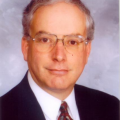"Sports does not build character. Sports reveals character," said journalist Heywood Broun more than half a century ago. He meant that athletic competition can bring out either the best or the worst in an athlete, depending on the inner strengths or weaknesses that the athlete brings to the game. Sports can be noble or ignoble, depending on who is playing and how they play.
On the night of September 26, 2014, fans displayed the ignoble side of sports at a high school football game in Plainfield, Connecticut. Within hours, however, the noble side prevailed as Plainfield student-athletes confronted a wrong that had reportedly festered in their town's sports programs for years.
First, the ignoble
In the final minute of a hard-fought game, the Plainfield Panthers scored a touchdown to upset the New London Whalers, 21-17. School administrators acknowledged that some Plainfield fans had taunted New London's black and Hispanic players with racial epithets throughout the contest. As the New London players left the locker room and walked toward their buses after the game, a fight broke out when a few Plainfield fans used the N-word, called the players "monkeys" and "dogs," and told them to "get back in their cages." New London quarterback Danny Maranda said that he was called an "N---- lover."
Two Plainfield fans, both recent graduates who had played football at the school, were arrested for second degree breach of the peace and released without bail. After banishing the pair from future school events, Plainfield's principal hand-delivered an apology letter to his New London counterpart. The schools canceled a freshman-sophomore football game scheduled for three days later.
Now, the Noble: "We Won't Tolerate Anything Less"
While Plainfield athletes and their classmates were not involved in the racial trash talking, the athletes reacted quickly. Shortly after the final whistle, Plainfield quarterback Steve Jankowski tweeted, "That was a great, clean game by both teams. It's a shame our fans had to ruin it. Good game NL [New London], I respect you guys to the fullest." His New London counterpart Danny Maranda immediately returned the courtesy with "appreciate it bro."
Directly facing into the camera at school a few days later, a group of Plainfield student-athletes (football players and others alike) made a video which minced no words. "We are the athletes of Plainfield High School, and we condemn the use of ugly racial slurs directed toward New London High School football players," they said. "We pledge ourselves to good sportsmanship and urge our family, friends, and fans to do the same, and we won't tolerate anything less. . . . We are a diverse school - different races, different religions, different colors."
Listening to the Athletes
Coaches told the media that the September 26 football confrontation was not the first time that Plainfield fans had hurled racial slurs at visiting minority opponents. Hartford Courant sportswriter Jeff Jacobs reported that a former high school basketball coach considers Plainfield among the worst fans his team faced, and that a former youth football coach had to make a point of teaching his players to ignore racial insults directed from the Plainfield stands. Jacobs says that Facebook postings and private correspondence identified the same problem. He did not think that racism was widespread in Plainfield, but he added that "[e]verybody can't be lying about their experiences."
One way or the other, Plainfield is not alone. A few times each month, the media reports ugly incidents of racial or ethnic trash talking at high school or youth league games somewhere in the United States. I doubt that the media captures every incident, or even most incidents.
Each ugly incident invites introspection, because sports reflects American society, and American society reflects sports. Players and fans do not shed their life experiences when they enter the locker room or pay for a ticket. Because responsible partisanship invigorates athletic competition, cheering for one's team marks the best in sports. Bigotry marks the worst because it crosses the line into indecency.
It may be too much to expect that appeals for tolerance such as those spoken on camera by the Plainfield student-athletes will lead some people to overcome deep-seated biases. Tolerance spoken from the heart, however, can resonate with impressionable listeners in good communities. Resonance can be particularly strong among young people who are raised in homes that teach mutual respect and understanding.
In the hours after the New London football game, Plainfield athletes summoned the best from their friends and neighbors of all ages. The athletes spoke clearly and unequivocally. Their challenge deserves to be heard, and their town will be better for listening.
Sources: Mark Allard, Ugly Incident a Black Eye For Plainfield, Norwich (Conn.) Bulletin, Sept. 27, 2014; Jeff Jacobs, Class Act By Plainfield Students Follows Ugly Act At Game, Hartford Courant, October 3, 2014.



















